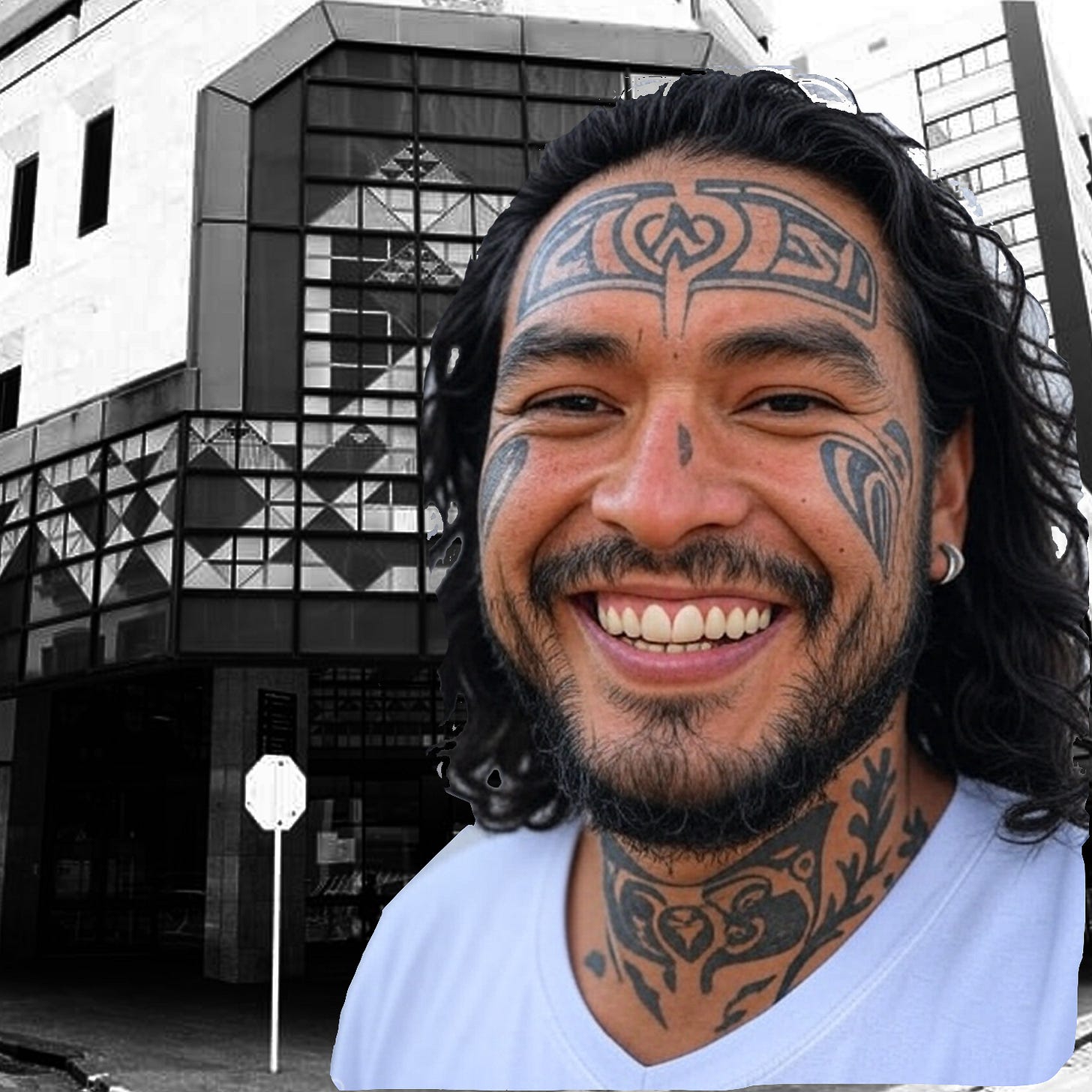Forget white privilege
Māori privilege is the real story
With arrests taking place in both Australia and the UK over people simply displaying the national flag, it is worth highlighting a disturbing case closer to home.
Last year, during the Te Pāti Māori organised Toitu Te Tiriti march, a man named Phil Engel was carrying the New Zealand flag on High Street, Masterton. He was not blocking marchers or causing disruption. He walked in front of the protest, keeping a safe distance, his flag held up quietly and peacefully.
What happened next was shocking. Engel was shoved by one of the movement’s leaders, sparking a scuffle. In the process, his flag was snapped in half. The altercation unfolded in plain sight of bystanders and was captured on camera. John Ansel’s footage shows Engel being physically manhandled, his flag grabbed and broken by those supposedly championing the cause of “tolerance and respect.”
You might think the story would end there, with police stepping in to investigate an assault on a citizen lawfully expressing himself. But that’s not what happened. Despite video evidence showing Engel being attacked, it is he who now finds himself before the courts. The police charged him with disorderly behaviour.
This decision raises deeply troubling questions about justice, freedom of expression, and the role of police neutrality in politically sensitive situations. When footage clearly shows who initiated the physical confrontation, why is the victim the one facing charges? Why is there no accountability for those who actually broke his property and laid hands on him?
If the law is supposed to apply equally to all, then Engel’s case demonstrates the opposite. It suggests a two-tiered system, where those who align with fashionable political causes are given a free pass, while anyone who challenges them, even passively, can expect to be treated as a criminal.
The flag he carried was not offensive. It was not inciting hatred. It was the national flag of New Zealand, a symbol meant to represent us all. However, in today’s climate, it seems that carrying it in the “wrong” place, at the “wrong” time, can make you a target not just for activists, but for the police themselves.
If you can be shoved, have your property broken, and then be the one criminalised for it, then what freedoms are left? What protections remain for ordinary people who want to quietly and peacefully express themselves in public?
The Engel case is not just about one man and a broken flag. It is about whether we still live in a country where the law is blind, or whether it has become a tool for enforcing political agendas. It is about whether dissenting voices will still be allowed to exist without being crushed under selective enforcement.
We are rapidly approaching a point where simply standing with a national flag could land you in handcuffs. That is not the New Zealand I grew up in, nor the one any of us should accept.
Talk about privilege, and most people immediately think of “white privilege.” In New Zealand today, another form of advantage is far more visible - Māori privilege. Across education, justice, and public life, there are clear examples of how identifying as Māori can mean special treatment.
Take education. At the University of Otago, Māori students can be accepted with lower grades than other applicants. Entry criteria are adjusted to meet “equity” goals, meaning the standard expected of non-Māori students doesn’t always apply. Success and opportunity in higher education are being rationed not by merit, but by identity.
Then there is the legal system. Serious charges, such as injuring with intent, can be resolved with a tikanga-led restorative justice hui. These are often touted as culturally appropriate, but some Māori offenders walk away with minimal consequence, while others would face serious penalties under standard criminal law.
These examples are not isolated incidents, they form a pattern. In education, the courts, and public life, the system often bends in favour of those identifying as Māori. This isn’t theory; it’s observable reality. It’s a form of privilege that comes from identity rather than actions or merit, and it affects real people in tangible ways.
Māori privilege is real. It shapes who gets opportunities, who escapes consequences, and who can act with impunity. Recognising it is uncomfortable, but pretending it doesn’t exist only lets the imbalance continue. New Zealanders deserve a discussion that is honest, fact-based, and unafraid to call out the inequities in our system - no matter how politically sensitive the topic might be.
One of the most ridiculous statements you hear thrown around is: “If Māori are so privileged, why are they the most overrepresented in our justice system and crime statistics?” Here’s the truth, spelled out clearly for them…






